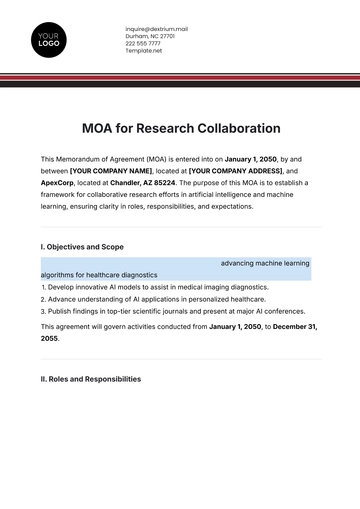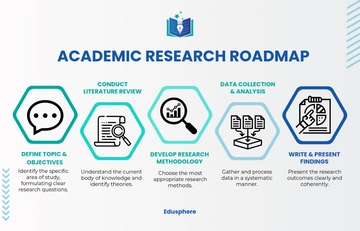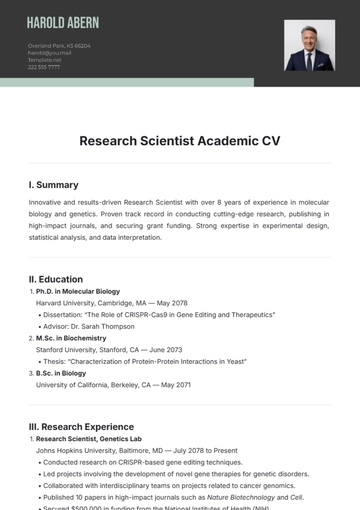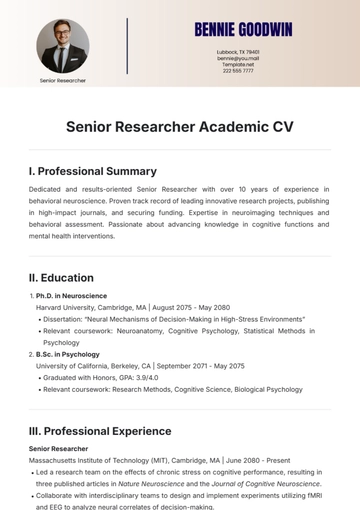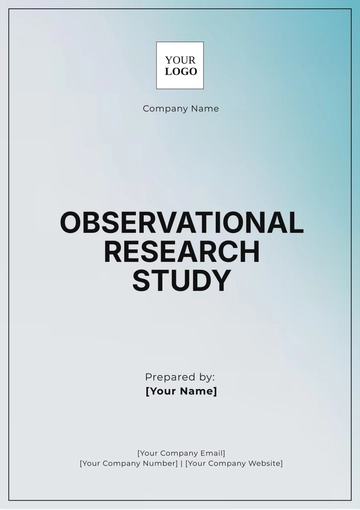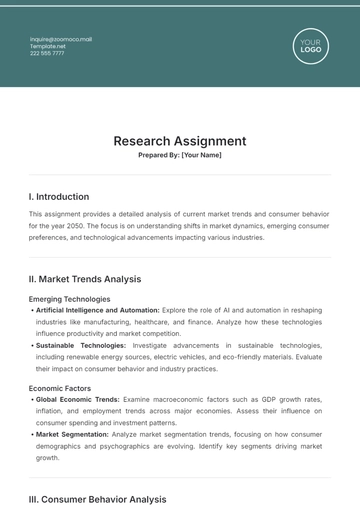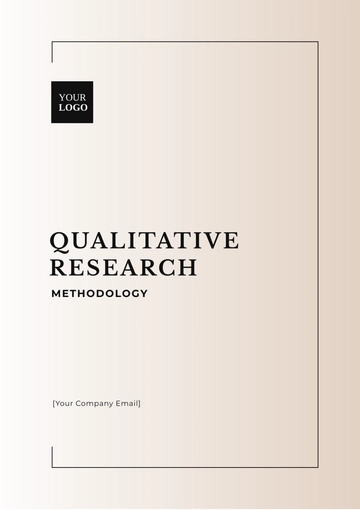Free Research Thesis

Prepared by: [YOUR NAME]
[YOUR EMAIL]
I. Introduction
In the ever-evolving business landscape, artificial intelligence (AI) has revolutionized how organizations make data-driven decisions. This research explores the role of AI in enhancing decision-making processes and its potential to transform business strategies in the coming decades.
II. Problem Statement
This thesis investigates how AI technologies are being integrated into business operations and how they influence decision-making across various industries. The key problem addressed is: How can AI improve the accuracy, efficiency, and effectiveness of business decisions in real-time environments?
III. Literature Review
The concept of AI in business is not new, but its applications have advanced rapidly in recent years. Key areas of AI influence include predictive analytics, machine learning algorithms, and automation. This section reviews current literature on AI's role in business strategy, its ethical considerations, and the impact on organizational performance.
Key Areas of Literature:
Predictive Analytics: AI’s ability to analyze data and predict future trends is invaluable for business forecasting.
Machine Learning Algorithms: AI-driven algorithms can enhance customer personalization and decision-making speed.
Ethical Considerations: The deployment of AI raises concerns about data privacy and biases in algorithmic decisions.
IV. Methodology
This study adopts a mixed-methods approach, combining qualitative interviews with business leaders and quantitative analysis of AI implementation in organizations. Data was collected from 100 companies across various industries, focusing on the adoption of AI tools and their impact on decision-making processes.
Research Approach:
Qualitative: Semi-structured interviews with key decision-makers.
Quantitative: Analysis of business performance metrics before and after AI adoption.
V. Data Analysis and Results
The collected data reveals significant improvements in decision-making accuracy, speed, and profitability for companies utilizing AI. However, challenges such as data quality, employee resistance, and integration complexity were also noted.
Industry | AI Adoption Rate (%) | Decision-Making Efficiency (Scale: 1-10) | Profit Increase (%) | Employee Satisfaction (%) |
|---|---|---|---|---|
Retail | 85 | 9 | 12 | 80 |
Manufacturing | 75 | 8 | 9 | 70 |
Finance | 90 | 10 | 15 | 85 |
Healthcare | 80 | 7 | 8 | 75 |
Technology | 95 | 10 | 20 | 90 |
VI. Discussion
The analysis indicates that AI adoption leads to tangible improvements in decision-making processes. Industries such as finance and technology see the highest returns, both in terms of efficiency and profitability. However, sectors like healthcare and manufacturing face challenges related to data integration and employee training.
Implications:
AI in Finance: Businesses in finance are leveraging AI to enhance customer insights and reduce operational risks.
AI in Healthcare: The healthcare industry is still grappling with AI’s potential in personalized medicine and predictive diagnostics.
VII. Conclusion
This research demonstrates that artificial intelligence plays a crucial role in enhancing decision-making processes across industries. As AI technologies continue to evolve, their integration into business practices will likely expand, offering new opportunities for improved strategic planning and operational efficiency.
VIII. Recommendations
Based on the findings, it is recommended that businesses prioritize the integration of AI technologies in their decision-making processes while addressing challenges related to data quality and employee resistance. Additionally, further research should focus on the ethical implications of AI, particularly in consumer-facing industries.
- 100% Customizable, free editor
- Access 1 Million+ Templates, photo’s & graphics
- Download or share as a template
- Click and replace photos, graphics, text, backgrounds
- Resize, crop, AI write & more
- Access advanced editor
Simplify your academic writing process with the Research Thesis Template from Template.net. This fully customizable and editable tool is designed to meet your specific research needs. Paired with our AI Editor Tool, creating polished and professional thesis documents becomes effortless. Save time and focus on your content with this user-friendly and versatile template.











